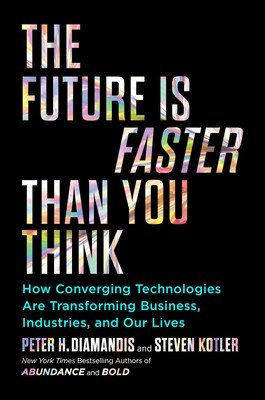

There’s also more capital available than ever before which means more crazy ideas being funded, which in turn leads to more breakthroughs. And that’s getting even faster because the number of people with access to technology is increasing, so we are able to solve more problems. But they are also being interweaved and converging: for example AI with robotics.

For example, communication networks, sensors, robotics, augmented and virtual reality, blockchain, and AI are all exponentially improving. Be it classical or quantum computing, as it becomes faster and cheaper lots of technologies that use it also become more capable. You say in the next decade we’ ll experience more progress than in the past 100 years. Because, yes, in the next 10 years, we’re going to reinvent every industry on this planet, but the change is one that is for the benefit of masses, whether it’s in longevity or food or banking. This book is about giving people a roadmap for where things are going over the next decade so they have less fear and more anticipation. And that is not good when you’re trying to solve problems. I can palpably feel how fast things are changing and that the rate of change is accelerating, and I have picked up a growing amount of fear coming from people who don’t understand where the world is going.

His new book, The Future Is Faster Than You Think, argues that the already rapid pace of technological innovation is about to get a whole lot quicker.ĭo you think people are worried about where technology is going to take us? The entrepreneur and investor is also co-founder of the Singularity University, a Silicon Valley-based nonprofit offering education in futurology. P eter Diamandis is best known as the founder of the XPrize Foundation, which offers big cash prizes as an incentive for tech solutions to big problems.


 0 kommentar(er)
0 kommentar(er)
